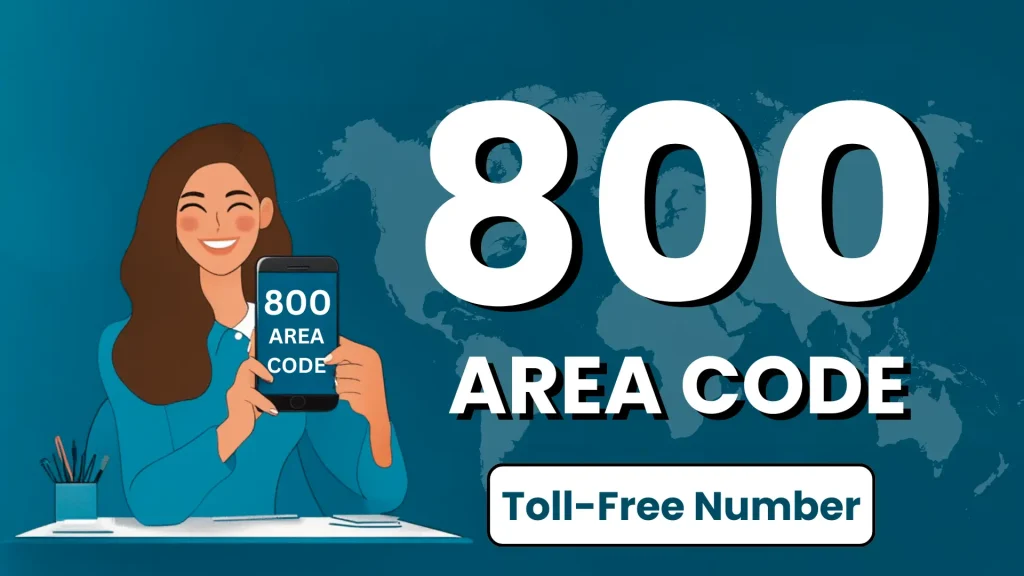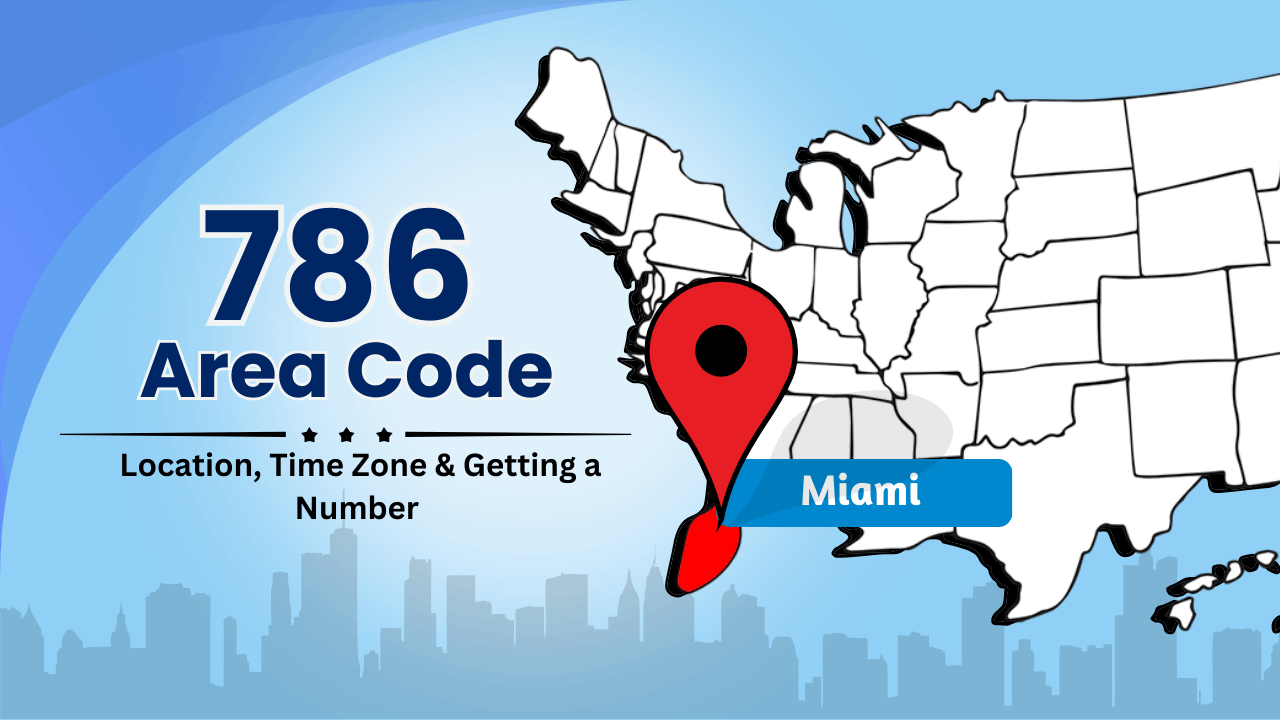The 800 area code, introduced in 1963, revolutionized customer service and sales interactions by providing toll-free communication. Today, 800 numbers remain a crucial tool for businesses, organizations, and individuals seeking to project a national presence and enhance customer engagement. In this comprehensive guide, we’ll explore the history, technical aspects, benefits, and management of 800 area code numbers.
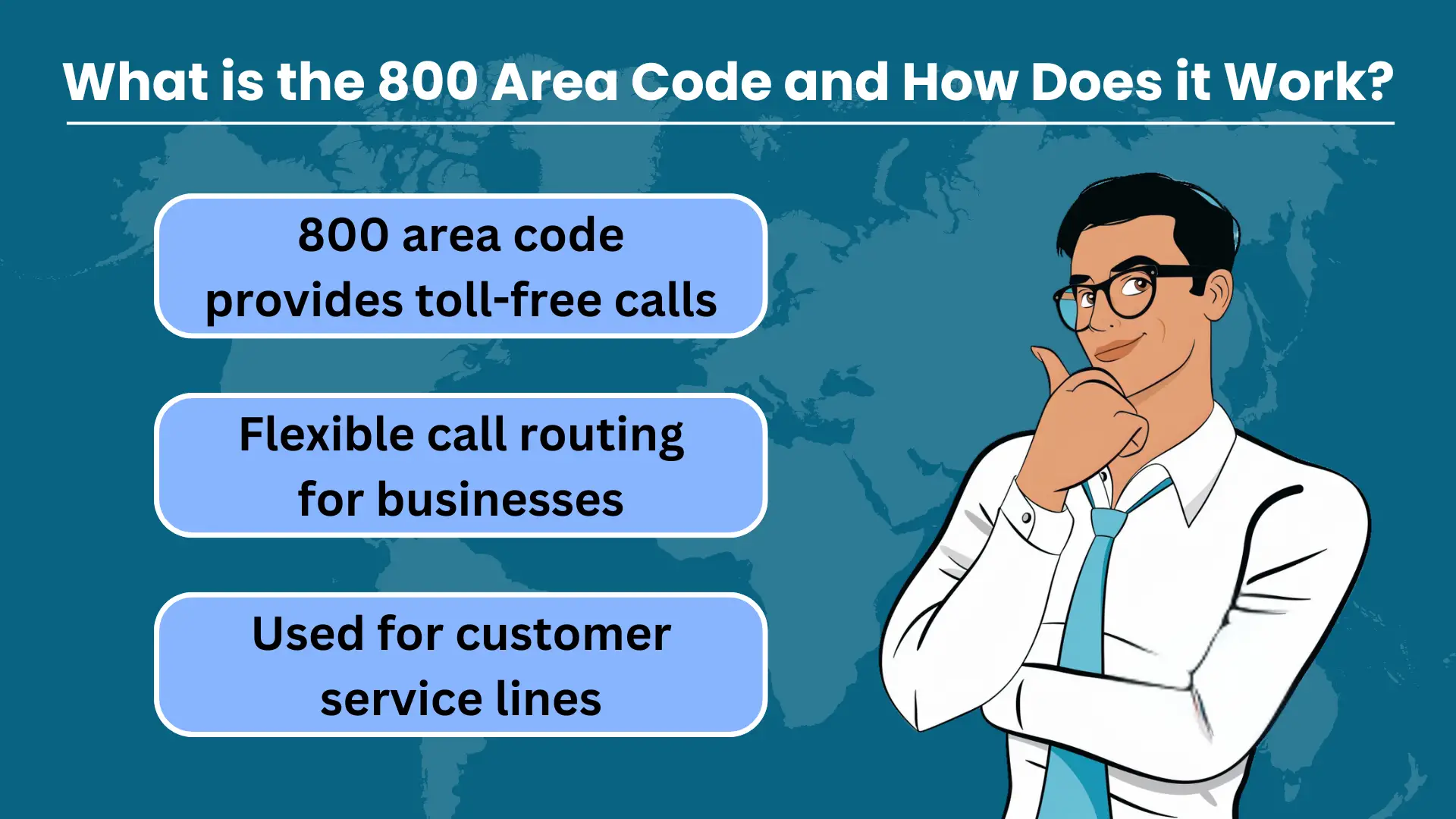 The 800 area code is a toll-free number prefix in the North American Numbering Plan (NANP), allowing callers to reach businesses or organizations without incurring long-distance charges. Introduced in 1963, the 800 area code revolutionized customer service and sales interactions.
The 800 area code is a toll-free number prefix in the North American Numbering Plan (NANP), allowing callers to reach businesses or organizations without incurring long-distance charges. Introduced in 1963, the 800 area code revolutionized customer service and sales interactions.
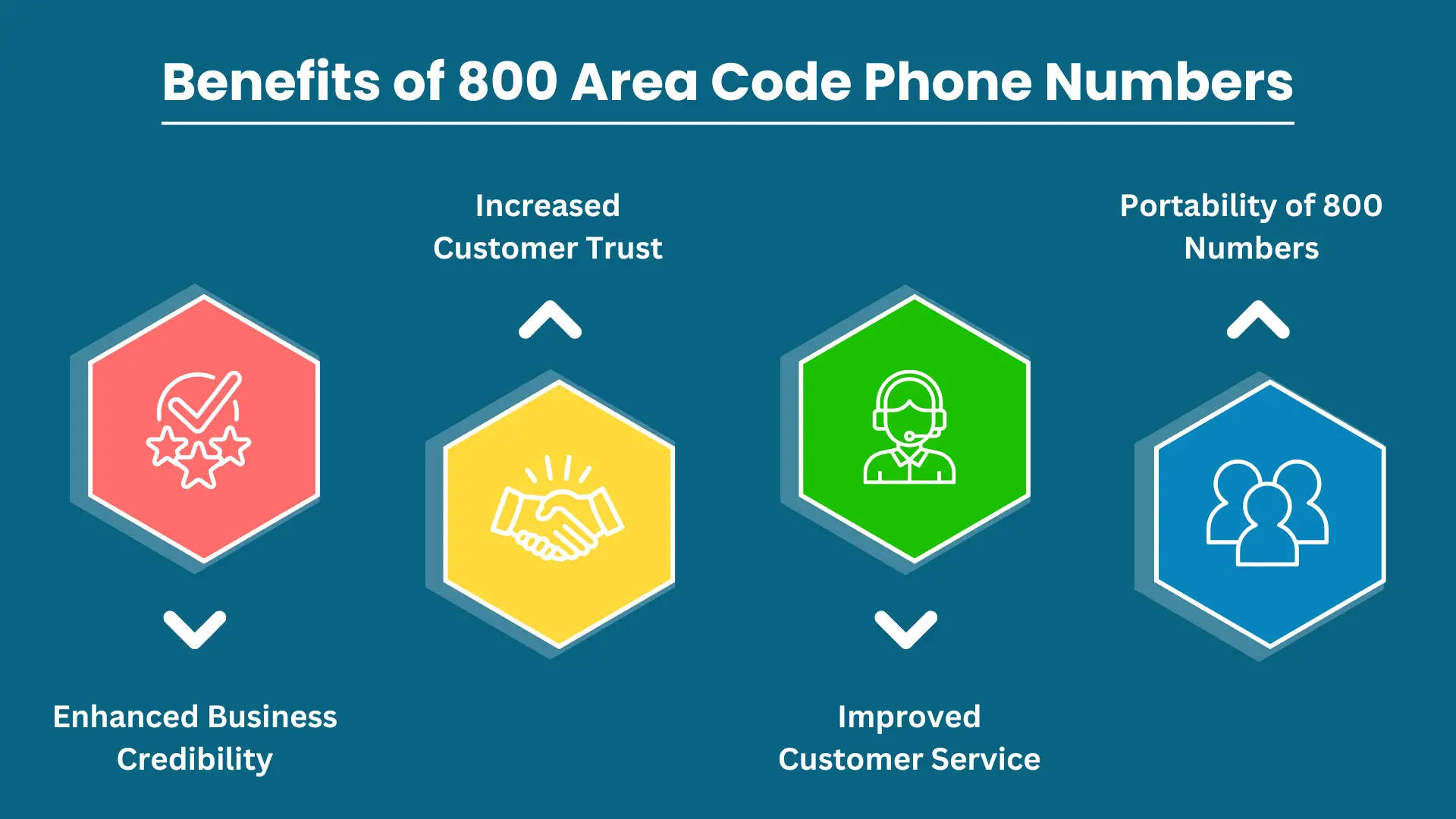 Using an 800 area code phone number can significantly enhance a business’s image and operations. This prefix is synonymous with toll-free calling, conveying a sense of professionalism and credibility to customers. By incorporating an 800 number into their communication strategy, businesses can project a national presence, attracting customers from wider geographical areas.
Using an 800 area code phone number can significantly enhance a business’s image and operations. This prefix is synonymous with toll-free calling, conveying a sense of professionalism and credibility to customers. By incorporating an 800 number into their communication strategy, businesses can project a national presence, attracting customers from wider geographical areas.
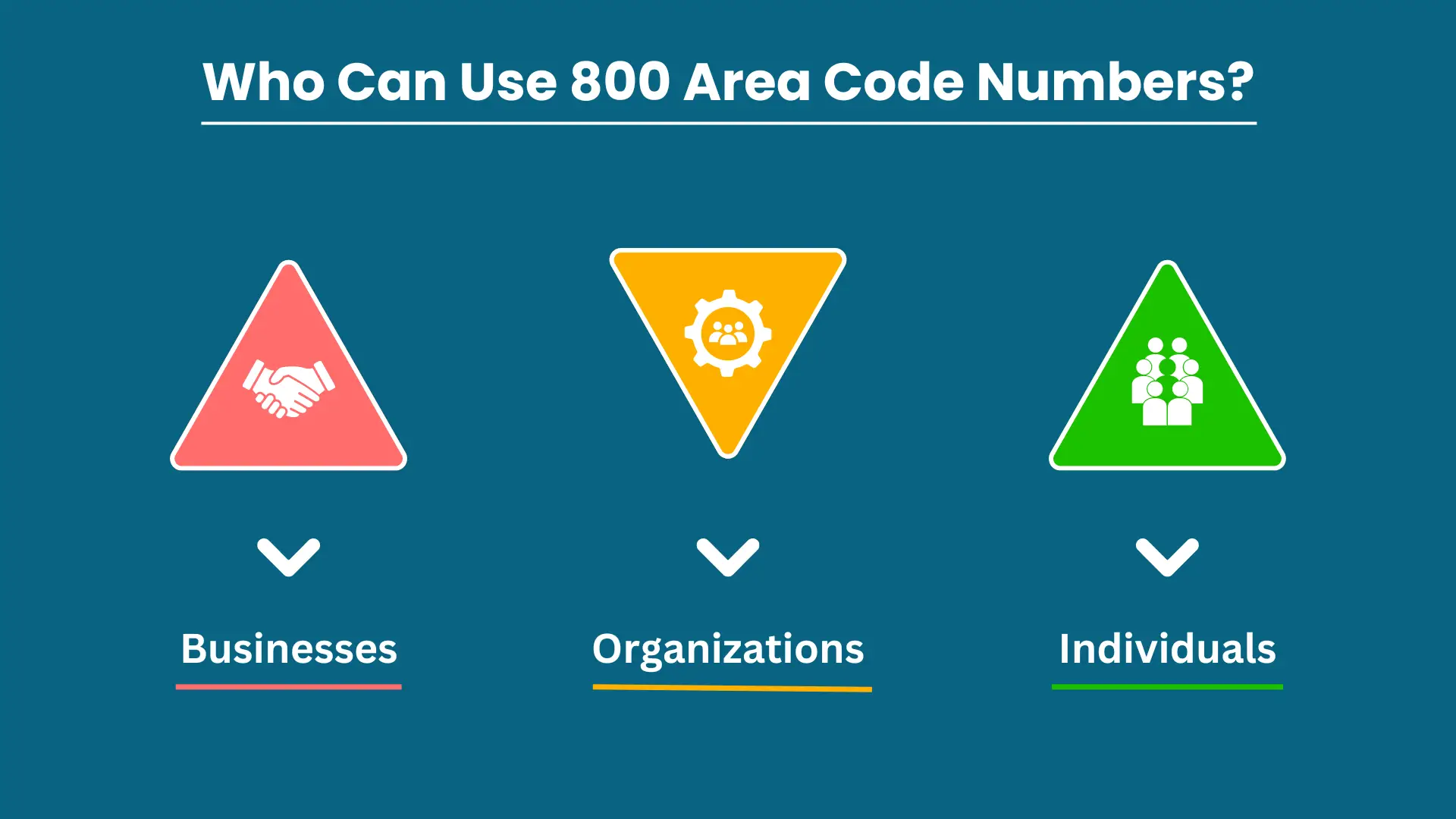 The versatility of 800 area code numbers makes them accessible to a wide range of entities, from established corporations to individual entrepreneurs. This inclusivity allows diverse organizations and professionals to project a national presence, enhance customer service, and streamline communication. By leveraging 800 numbers, businesses, organizations, and individuals can foster trust, improve accessibility, and stay competitive in their respective markets.
The versatility of 800 area code numbers makes them accessible to a wide range of entities, from established corporations to individual entrepreneurs. This inclusivity allows diverse organizations and professionals to project a national presence, enhance customer service, and streamline communication. By leveraging 800 numbers, businesses, organizations, and individuals can foster trust, improve accessibility, and stay competitive in their respective markets.
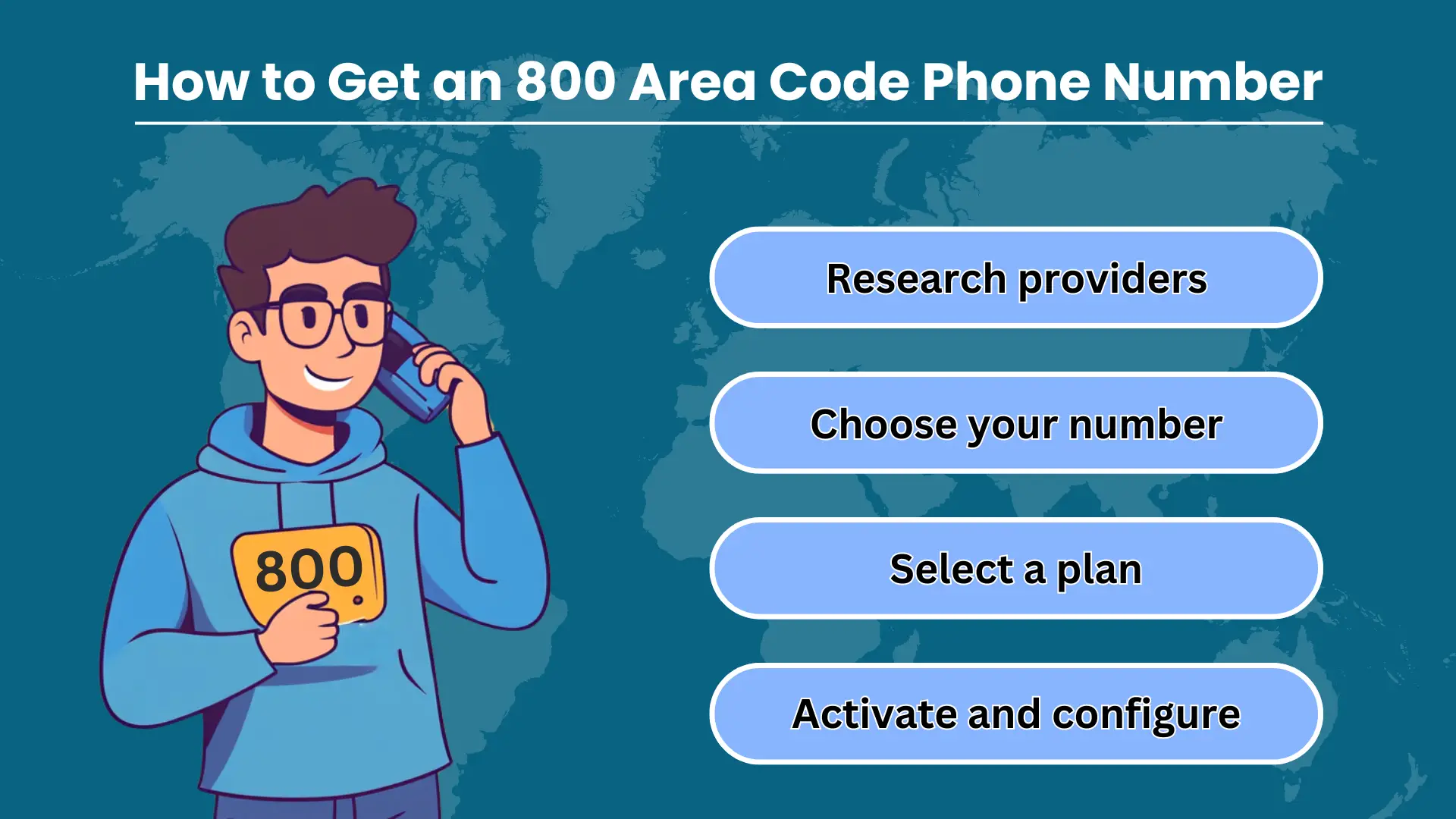 Obtaining an 800 area code phone number is a great way for businesses to create a national presence and make it easier for customers to contact them. The process is straightforward but requires choosing the right provider and plan that suits your business needs. By following a few simple steps, you can get an 800 number that will improve your business’s accessibility and professionalism. Here’s a concise guide on how to secure your 800 area code phone number, along with tips on choosing the best provider.
Obtaining an 800 area code phone number is a great way for businesses to create a national presence and make it easier for customers to contact them. The process is straightforward but requires choosing the right provider and plan that suits your business needs. By following a few simple steps, you can get an 800 number that will improve your business’s accessibility and professionalism. Here’s a concise guide on how to secure your 800 area code phone number, along with tips on choosing the best provider.
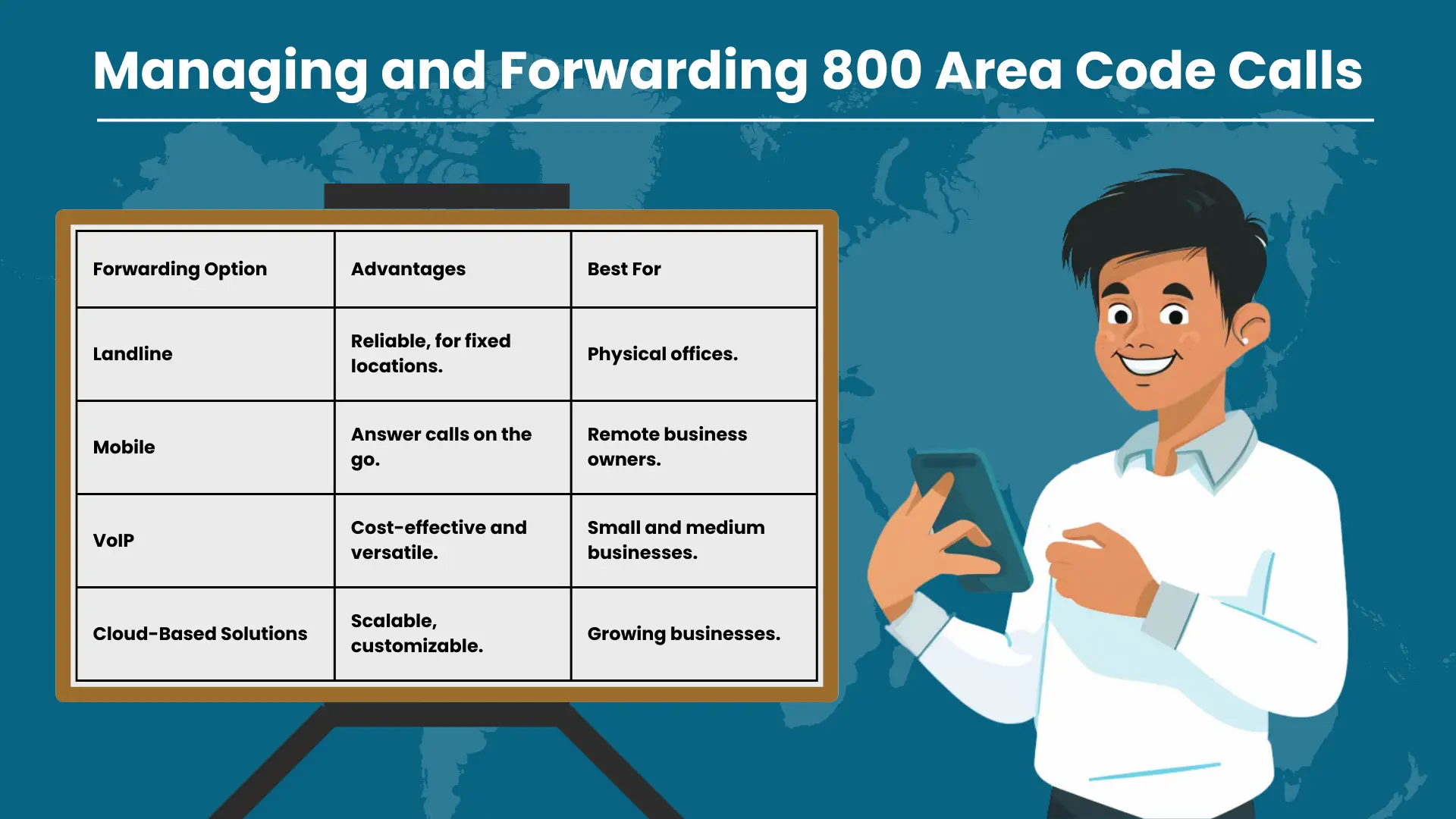 Managing 800 area code calls is essential for businesses aiming to enhance customer experience. Whether using landline, mobile, VoIP, or cloud-based solutions, proper call management ensures smooth communication. Advanced features like IVR, call routing, and analytics further optimize the process, improving efficiency and customer satisfaction.
Managing 800 area code calls is essential for businesses aiming to enhance customer experience. Whether using landline, mobile, VoIP, or cloud-based solutions, proper call management ensures smooth communication. Advanced features like IVR, call routing, and analytics further optimize the process, improving efficiency and customer satisfaction.
Key Takeaways:
- 800 area code numbers offer toll-free calling for customers within the North American Numbering Plan (NANP)
- Businesses can choose their own toll-free service providers for flexible carrier selection
- 800 numbers enhance customer convenience, credibility, and sales
- Advanced features like IVR, call routing, and analytics optimize call management
- Suitable for businesses, organizations, and individuals seeking a national presence
What is the 800 Area Code and How Does it Work?
 The 800 area code is a toll-free number prefix in the North American Numbering Plan (NANP), allowing callers to reach businesses or organizations without incurring long-distance charges. Introduced in 1963, the 800 area code revolutionized customer service and sales interactions.
The 800 area code is a toll-free number prefix in the North American Numbering Plan (NANP), allowing callers to reach businesses or organizations without incurring long-distance charges. Introduced in 1963, the 800 area code revolutionized customer service and sales interactions.
History and Evolution of the 800 Area Code
The 800 area code was first introduced by AT&T in 1963 as a solution for businesses wanting to provide toll-free customer service. Initially, 800 numbers were limited, and assignment was restricted. As demand grew, additional prefixes (888, 877, 866, 855, 844, and 833) were introduced. Today, toll-free numbers play a crucial role in customer-facing industries.Technical Aspects: Toll-Free Calling, Routing, and Carrier Selection
Toll-free calls are routed through a dedicated network, bypassing traditional geographic routing. When a caller dials an 800 number, the call is directed to a toll-free service provider, which then connects the call to the recipient’s chosen carrier. Businesses can choose their own toll-free service providers, allowing flexibility in managing incoming calls.800 Area Code Formatting and Dialing Rules
800 numbers follow a standard format: 800-XXX-XXXX. Dialing rules are straightforward: callers simply dial the 800 prefix, followed by the unique seven-digit number. No area code or international access code is required. Some notable variations include:Key Features of 800 Area Code Numbers
- Toll-free calling for callers within the NANP
- Wide availability across the United States and Canada
- Flexible carrier selection for businesses
Benefits for Businesses
- Enhanced customer convenience
- Increased sales and support inquiries
- Improved brand credibility
Modern Applications
- Customer service hotlines
- Sales and order lines
- Technical support and help desks
Benefits of 800 Area Code Phone Numbers
 Using an 800 area code phone number can significantly enhance a business’s image and operations. This prefix is synonymous with toll-free calling, conveying a sense of professionalism and credibility to customers. By incorporating an 800 number into their communication strategy, businesses can project a national presence, attracting customers from wider geographical areas.
Using an 800 area code phone number can significantly enhance a business’s image and operations. This prefix is synonymous with toll-free calling, conveying a sense of professionalism and credibility to customers. By incorporating an 800 number into their communication strategy, businesses can project a national presence, attracting customers from wider geographical areas.
Enhanced Business Credibility and Professionalism
An 800 area code phone number instantly conveys a sense of establishment and reliability. It separates businesses from smaller, local entities, suggesting a larger, more organized operation. This perception is crucial for attracting corporate clients and competing in the national market. With an 800 number, businesses demonstrate their commitment to customer convenience and service quality.Increased Customer Trust and Call Conversions
Toll-free numbers eliminate a significant barrier to customer inquiries – the cost of the call. By making calls free for customers, businesses encourage more inquiries, leading to higher conversion rates. Additionally, the transparency and accessibility associated with 800 numbers foster trust among potential customers, making them more likely to engage with the business.Improved Customer Service and Support Capabilities
800 numbers enable businesses to centralize their customer service operations efficiently. Advanced features like call routing and tracking allow for better management of customer interactions. This streamlined approach ensures that customer inquiries are addressed promptly and effectively, enhancing overall customer satisfaction.Flexibility and Portability of 800 Numbers
800 area code phone numbers are highly portable, allowing businesses to maintain consistency across different locations and communication platforms. This flexibility ensures uninterrupted customer service, even during periods of growth or relocation. Investing in an 800 area code phone number is a strategic move to elevate your business’s national profile and customer engagement.Who Can Use 800 Area Code Numbers?
 The versatility of 800 area code numbers makes them accessible to a wide range of entities, from established corporations to individual entrepreneurs. This inclusivity allows diverse organizations and professionals to project a national presence, enhance customer service, and streamline communication. By leveraging 800 numbers, businesses, organizations, and individuals can foster trust, improve accessibility, and stay competitive in their respective markets.
The versatility of 800 area code numbers makes them accessible to a wide range of entities, from established corporations to individual entrepreneurs. This inclusivity allows diverse organizations and professionals to project a national presence, enhance customer service, and streamline communication. By leveraging 800 numbers, businesses, organizations, and individuals can foster trust, improve accessibility, and stay competitive in their respective markets.
Businesses: Scaling Operations with 800 Numbers
Large enterprises, small to medium-sized enterprises (SMEs), and startups can all benefit from 800 area code numbers. These numbers facilitate national expansion, enhance customer engagement, and provide a professional image. For larger corporations, 800 numbers simplify customer support, while for SMEs and startups, they offer a competitive edge. By integrating 800 numbers into their operations, businesses can efficiently manage customer interactions and track marketing efforts.Organizations: Enhancing Public Service with 800 Numbers
Non-profit organizations, government agencies, and educational institutions can utilize 800 area code numbers to provide accessible services to the public. These numbers enable citizens to contact government agencies without incurring charges, promote donations to non-profits, and facilitate student inquiries to educational institutions. By adopting 800 numbers, organizations demonstrate their commitment to public convenience and accessibility.Individuals: Establishing Professional Presence
Entrepreneurs, freelancers, and solo professionals can establish a national presence with 800 area code numbers. These numbers provide a professional image, separating individuals from local or hobby-based operations. With 800 numbers, individuals can manage client communications effectively, track business performance, and project a level of expertise that attracts high-value clients. Regardless of size or type, any entity can harness the benefits of 800 area code numbers to enhance their communication strategy and national presence.How to Get an 800 Area Code Phone Number
 Obtaining an 800 area code phone number is a great way for businesses to create a national presence and make it easier for customers to contact them. The process is straightforward but requires choosing the right provider and plan that suits your business needs. By following a few simple steps, you can get an 800 number that will improve your business’s accessibility and professionalism. Here’s a concise guide on how to secure your 800 area code phone number, along with tips on choosing the best provider.
Obtaining an 800 area code phone number is a great way for businesses to create a national presence and make it easier for customers to contact them. The process is straightforward but requires choosing the right provider and plan that suits your business needs. By following a few simple steps, you can get an 800 number that will improve your business’s accessibility and professionalism. Here’s a concise guide on how to secure your 800 area code phone number, along with tips on choosing the best provider.
Step-by-Step Guide to Obtaining an 800 Number
- Research providers – Start by researching and comparing different providers that offer 800 numbers. Top choices include major carriers like Verizon, AT&T, or cloud-based services such as RingCentral.
- Choose your number – Providers typically allow you to choose from a selection of available 800 numbers. You may even have the option to customize your number for better recall.
- Select a plan – Once you have selected your number, pick a service plan that aligns with your expected call volume and business requirements.
- Activate and configure – After signing up, set up call routing, forwarding, voicemail, and other important features to ensure smooth operation.
- Advertise your number – Once your 800 number is ready, promote it through your website, social media, and marketing materials so customers know how to reach you.
Comparison of Top 800 Number Providers
There are many providers of 800 numbers, each with different strengths. Verizon offers reliable service with a strong network and is well-suited for large enterprises. AT&T provides flexible plans with scalable features, making it a solid choice for growing businesses. RingCentral stands out for offering 800 numbers along with cloud-based phone systems, making it perfect for companies looking for an all-in-one solution. Choosing the right provider depends on your business needs and budget.Tips for Choosing the Right Provider and Plan
- Assess your needs – Estimate your call volume and choose a provider that offers a suitable plan based on your expected business demands.
- Compare features – Look for providers that offer additional features like call analytics, voicemail to email, or call routing, as these can enhance your business communication.
- Customer support – Ensure the provider offers reliable and responsive customer support to resolve any issues quickly.
Managing and Forwarding 800 Area Code Calls
 Managing 800 area code calls is essential for businesses aiming to enhance customer experience. Whether using landline, mobile, VoIP, or cloud-based solutions, proper call management ensures smooth communication. Advanced features like IVR, call routing, and analytics further optimize the process, improving efficiency and customer satisfaction.
Managing 800 area code calls is essential for businesses aiming to enhance customer experience. Whether using landline, mobile, VoIP, or cloud-based solutions, proper call management ensures smooth communication. Advanced features like IVR, call routing, and analytics further optimize the process, improving efficiency and customer satisfaction.
Call Forwarding Options: Landline, Mobile, VoIP, and Cloud-Based Solutions
Businesses can forward 800 area code calls through various platforms, each with its own advantages:| Forwarding Option | Advantages | Best For |
| Landline | Reliable, for fixed locations. | Physical offices. |
| Mobile | Answer calls on the go. | Remote business owners. |
| VoIP | Cost-effective and versatile. | Small and medium businesses. |
| Cloud-Based Solutions | Scalable, customizable. | Growing businesses. |
Advanced Call Management Features: IVR, Call Routing, and Analytics
Advanced features enhance call management. IVR systems help direct customers automatically, while call routing ensures calls are forwarded based on specific rules. Call analytics offer insights into performance, helping businesses refine their strategies.Best Practices for Optimizing Call Management
To optimize 800 number call handling, businesses should regularly update call routing rules, leverage analytics, and maintain a smooth IVR experience. These practices ensure efficient and seamless communication with customers. This concise version highlights key points and keeps the content simple! Let me know if you’d like any further edits!Conclusion:
Incorporating an 800 area code number into your business strategy can significantly enhance customer convenience, credibility, and sales. With its flexibility, portability, and advanced features, 800 numbers remain an essential tool for projecting a national presence. By understanding the benefits and management of 800 area code numbers, businesses can optimize their communication and stay competitive in the market. The versatility of 800 area code numbers makes them accessible to diverse entities, from established corporations to individual entrepreneurs. By leveraging these numbers, businesses can foster trust, improve accessibility, and streamline communication. Whether you’re a large enterprise or a solo professional, an 800 area code number can elevate your national profile and customer engagement.FAQs
The 800 area code provides toll-free communication for customers, allowing businesses to offer convenient and cost-free contact.
Businesses, organizations, and individuals can use 800 area code numbers to project a national presence and enhance customer engagement.
Research providers, choose your number, select a plan, activate and configure, and advertise your number to obtain an 800 area code phone number.
Benefits include enhanced customer convenience, credibility, and sales, as well as flexible carrier selection and advanced call management features.
Yes, businesses can forward 800 area code calls through various platforms, including landline, mobile, VoIP, and cloud-based solutions.

